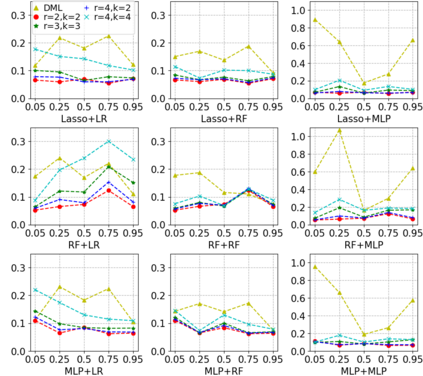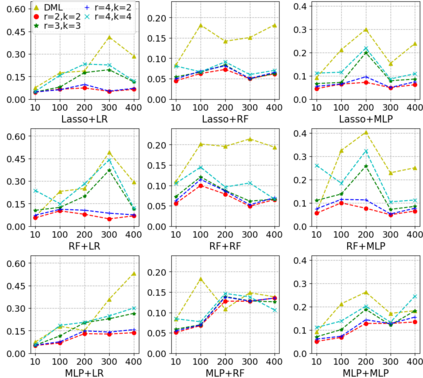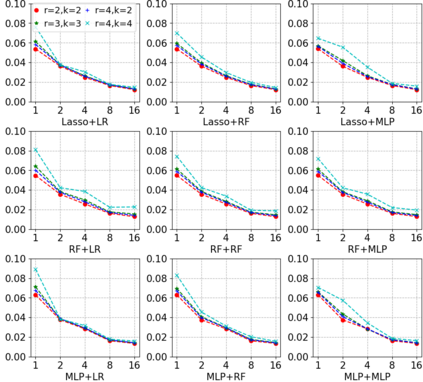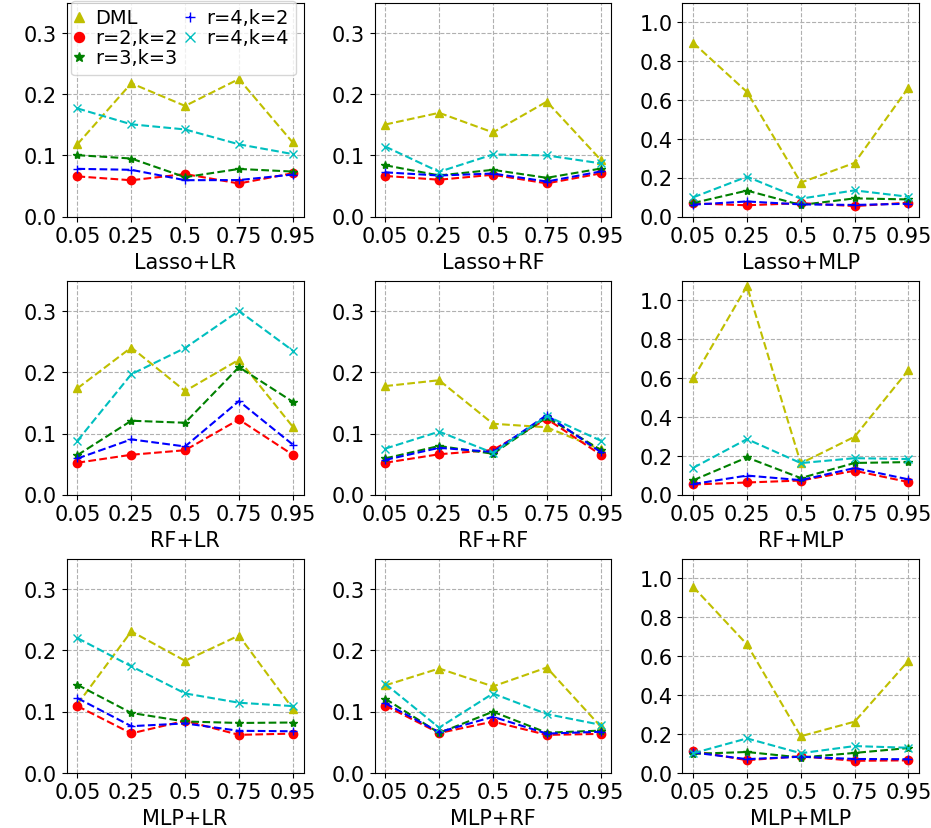Most existing studies on the double/debiased machine learning method concentrate on the causal parameter estimation recovering from the first-order orthogonal score function. In this paper, we will construct the $k^{\mathrm{th}}$-order orthogonal score function for estimating the average treatment effect (ATE) and present an algorithm that enables us to obtain the debiased estimator recovered from the score function. Such a higher-order orthogonal estimator is more robust to the misspecification of the propensity score than the first-order one does. Besides, it has the merit of being applicable with many machine learning methodologies such as Lasso, Random Forests, Neural Nets, etc. We also undergo comprehensive experiments to test the power of the estimator we construct from the score function using both the simulated datasets and the real datasets.
翻译:有关双偏差机器学习方法的现有研究大多集中于从第一阶正对分函数恢复的因果参数估计。 在本文中, 我们将构建 $k ⁇ mathrm{th ⁇ $-order orthogonal 评分函数, 以估计平均治疗效果( ATE), 并推出一种算法, 使我们能够获取从评分函数中回收的脱偏差估测器 。 这种高阶正对偏差分分比第一阶的偏差更强。 此外, 它的优点在于适用于许多机器学习方法, 如 Lasso、 Randomform、 Neoral Nets等 。 我们还进行了全面实验, 以测试我们用模拟数据集和真实数据集从分数函数中构建的测分数器的功率 。






